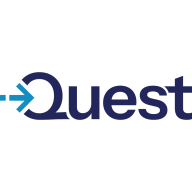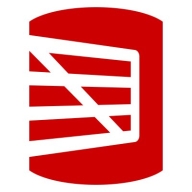

Redgate SQL Toolbelt Essentials and Foglight for Databases compete in SQL database management and monitoring. Redgate leads in pricing and customer support, while Foglight excels in features, offering a comprehensive monitoring solution.
Features: Redgate SQL Toolbelt Essentials provides integrated development tools, enhances database change management, and improves team productivity. Foglight for Databases supports various database environments with proactive performance management, robust monitoring, and diagnostics capabilities, making it ideal for complex setups.
Ease of Deployment and Customer Service: Redgate SQL Toolbelt Essentials ensures smoother deployment and responsive customer service, ideal for fast implementation. Foglight for Databases offers detailed documentation and support for large installations, providing resources tailored for complex systems.
Pricing and ROI: Redgate SQL Toolbelt Essentials has straightforward pricing, providing solid ROI due to its features and support. Foglight for Databases involves a higher initial cost, but its scalability and advanced features offer significant ROI for comprehensive performance management needs.
| Product | Market Share (%) |
|---|---|
| Foglight for Databases | 3.9% |
| Redgate SQL Toolbelt Essentials | 4.5% |
| Other | 91.6% |

| Company Size | Count |
|---|---|
| Small Business | 2 |
| Midsize Enterprise | 2 |
| Large Enterprise | 10 |
Foglight for Databases offers comprehensive monitoring with real-time activity screens and adaptive baselines. It provides a 360-degree overview and efficient UI, requiring no custom scripts, aiding in proactive issue identification and resolution before impacting end users.
Foglight for Databases is a robust tool for monitoring across multiple platforms, including SQL and Oracle. It provides features like the "Morning Coffee" dashboard and SQL Performance Investigator, enabling effective workload analysis and historical investigation. Despite some challenges with sluggish performance on large data volumes and excessive non-critical alerts, it remains a preferred choice for its ability to support proactive management and resource planning. Users appreciate its centralized view of extensive database systems, enabling swift detection and resolution of issues in real-time.
What are the key features?Foglight is extensively implemented in industries managing extensive database systems, handling numerous servers to ensure availability and performance. It assists businesses in resolving blocking and locking deadlocks, crucial for maintaining smooth operations in production and development environments.
Redgate SQL Toolbelt Essentials offers essential tools for optimizing, managing, and deploying SQL Server databases efficiently, ideal for professionals seeking reliable database solutions.
Designed for database professionals, Redgate SQL Toolbelt Essentials streamlines SQL Server database management with a suite of integrated tools. It simplifies complex tasks, increases productivity, and helps maintain consistency across deployments. By automating repetitive tasks, it allows users to focus on critical areas, promoting a more efficient workflow. Its integration with existing systems ensures a smooth transition and compatibility with current technologies.
What are the most important features?Industries implementing Redgate SQL Toolbelt Essentials often experience increased efficiency in database management. For example, financial services use it for precise data handling, while healthcare leverages its data integrity features to ensure accurate patient records, improving both the security and reliability of their IT infrastructure.
We monitor all Database Development and Management reviews to prevent fraudulent reviews and keep review quality high. We do not post reviews by company employees or direct competitors. We validate each review for authenticity via cross-reference with LinkedIn, and personal follow-up with the reviewer when necessary.